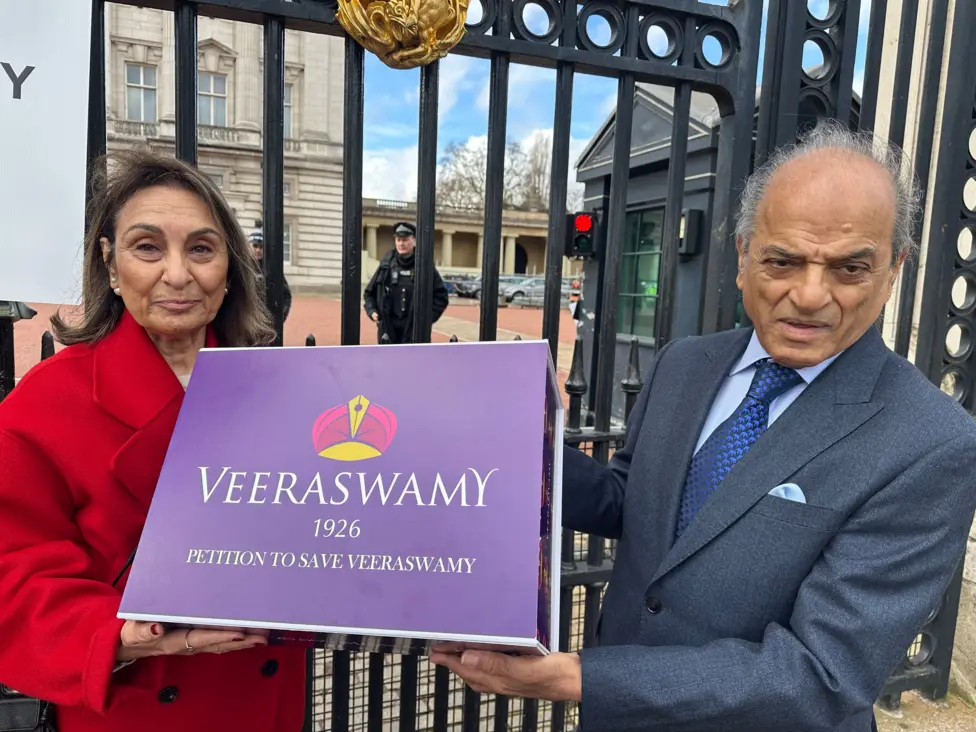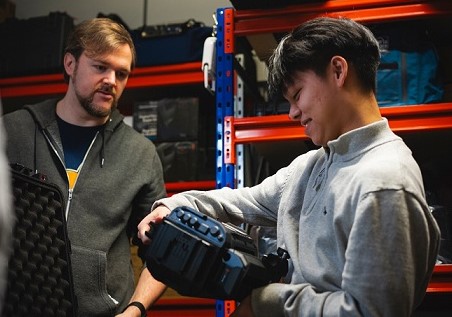Pope Francis has died aged 88, the Vatican said.
The Pope, who was the first Latin American leader of the Roman Catholic Church, died at 07:35 local time on Easter Monday. World leaders pay tribute to his "contagious smile" and "boundless compassion", with French President Emmanuel Macron calling him a "man of humility."
His death comes a day after he appeared in St Peter's Square to wish "Happy Easter" to thousands of worshippers. Pope Francis was recently discharged from hospital last month after five weeks of treatment for an infection.
Pope Francis was born Jorge Mario Bergoglio, in Buenos Aires, Argentina, on 17 December 1936. The eldest of five children, his parents had fled their native Italy to escape the evils of fascism.
He enjoyed tango dancing and became a supporter of his local football club, San Lorenzo, and he was lucky to escape with his life after a serious bout of pneumonia, undergoing an operation to remove part of a lung. It would leave him susceptible to infection throughout his life.
As an elderly man he also suffered from pain in his right knee, which he described as a "physical humiliation". The young Bergoglio worked as a nightclub bouncer and floor sweeper, before graduating as a chemist.
Ordained a decade later, he won swift promotion, becoming provincial superior for Argentina in 1973. Italian Prime Minister Giorgia Meloni says "this news saddens us deeply".
"I had the privilege of enjoying his friendship," she adds in the statement. She added: "He asked the world, once again, for the courage to change direction, to follow a path that 'does not destroy, but cultivates, repairs, protects'".
"His teaching and his legacy will not be lost. We greet the Holy Father with hearts full of sadness, but we know that he is now in the peace of the Lord."
The Archbishop of York, Stephen Cottrell - who is the acting head of the Church of England – said: "We saw that compellingly in Francis’s service of the poor, his love of neighbour especially the displaced, migrant, the asylum seeker, his deep compassion for the well-being of the earth and his desire to lead and build the church in new ways.
"Francis showed us how to follow Jesus and encouraged us to go and do likewise... In their humility and focus on those in the margins, those actions, his whole life, was instantly recognisable as those of one who followed Jesus."
In his final address, the pontiff remembered the people of Gaza, in particular its Christian population, as the conflict "causes death and destruction" and creates a "deplorable humanitarian situation". He also called growing global antisemitism "worrisome".
"What a great thirst for death, for killing we see in the many conflicts raging in different parts of the world," he said. The pontiff's death not only follows the most important calendar event for Catholics, but falls into the special jubilee year, which comes around every 25 years.
"I express my closeness to the sufferings... for all the Israeli people and the Palestinian people," the message said. "Call a ceasefire, release the hostages and come to the aid of a starving people that aspires to a future of peace."
The Pope also encouraged all parties involved in the Ukraine war to "pursue efforts aimed at achieving a just and lasting peace". His death comes fewer than 24 hours after he made an appearance at the Vatican's St Peter's Square for Easter Sunday.
A papal funeral has traditionally been an elaborate affair, but Pope Francis recently approved plans to make the whole procedure less complex. Previous pontiffs were buried in three nested coffins made of cypress, lead and oak.
He has opted for a simple wooden coffin lined with zinc and also scrapped the tradition of placing the Pope's body on a raised platform - known as a catafalque - in St Peter's Basilica for public viewing. Instead, mourners will be invited to pay their respects while his body remains inside the coffin, with the lid removed.
Francis will also be the first Pope in more than a Century to be buried outside the Vatican. He will be laid to rest in the Basilica of St Mary Major, one of four major papal basilicas in Rome.











